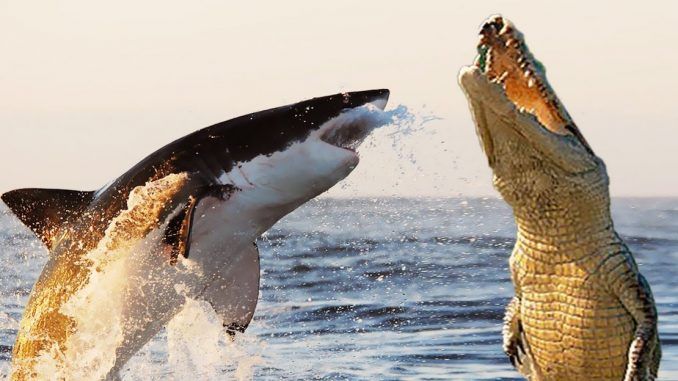
Throughout the ages humanity has debated who would win a fight between an alligator and a shark, and now U.S. researchers have finally provided an answer to the question that has fascinated people from all corners of the globe for millennia.
According to researchers at Kansas State University, alligators and sharks are both capable of winning the fight. It depends on which is bigger.
“The frequency of one predator eating the other is really about size dynamic,” said James Nifong, a researcher at Kansas State University.

BYPASS THE CENSORS
Sign up to get unfiltered news delivered straight to your inbox.
You can unsubscribe any time. By subscribing you agree to our Terms of Use
“If a small shark swims by an alligator and the alligator feels like it can take the shark down, it will, but we also reviewed some old stories about larger sharks eating smaller alligators.”
When the researchers first came forward with their findings, many readers of Southeastern Naturalist, the journal where the first scientific study of the largely unseen struggle between the two feared predators was first published, refused to believe that an alligator could possibly take down a shark in a fair fight.
But the researchers have documented instances of alligators preying upon small sharks along the Atlantic and Gulf coasts.
Working on the study titled Reciprocal Intraguild Predation between Alligator mississippiensis (American Alligator) and Elasmobranchii in the Southeastern United States, James Nifong and his colleagues spent nearly 10 years studying alligators along the Florida and Georgia coasts, typically using lamps at night to view their nocturnal hunting activities.
More than 500 alligators were caught and had their stomachs pumped to see what they had consumed.
Guardian reports: Alligators typically eat fish, crustaceans and snails, but Nifong’s research found evidence that they had consumed three species of shark and a type of stingray. The sharks measured 3-4ft.
By looking at the historical record, Nifong saw there was evidence of alligators tangling with sharks as far back as the 1870s, but the observations were limited to an island off the Georgia coast, including one episode in which sharks attacked a group of alligators that were feeding on fish.
The new research found that shark-eating alligators are in fact found along the Atlantic coast of Georgia and Florida, around to Florida’s Gulf coast.
Although sharks prefer salt water and alligators are fresh-water-dwelling, Nifong said that sharks and rays could swim into freshwater and GPS tracking of alligators demonstrated that the animals were opportunistic enough to take advantage.
“Alligators seek out fresh water in high-salinity environments,” Nifong said. “When it rains really hard, they can actually sip fresh water off the surface of the salt water. That can prolong the time they can stay in a saltwater environment.”
More research is required to discover if alligator attacks on sharks are increasing, but interactions may be influenced by coastal development that has pushed alligators out of their estuarine habitats. This has put pressure on alligator populations.
“The findings bring into question how important sharks and rays are to the alligator diet as well as the fatality of some the juvenile sharks when we think about population management of endangered species,” Nifong said.


